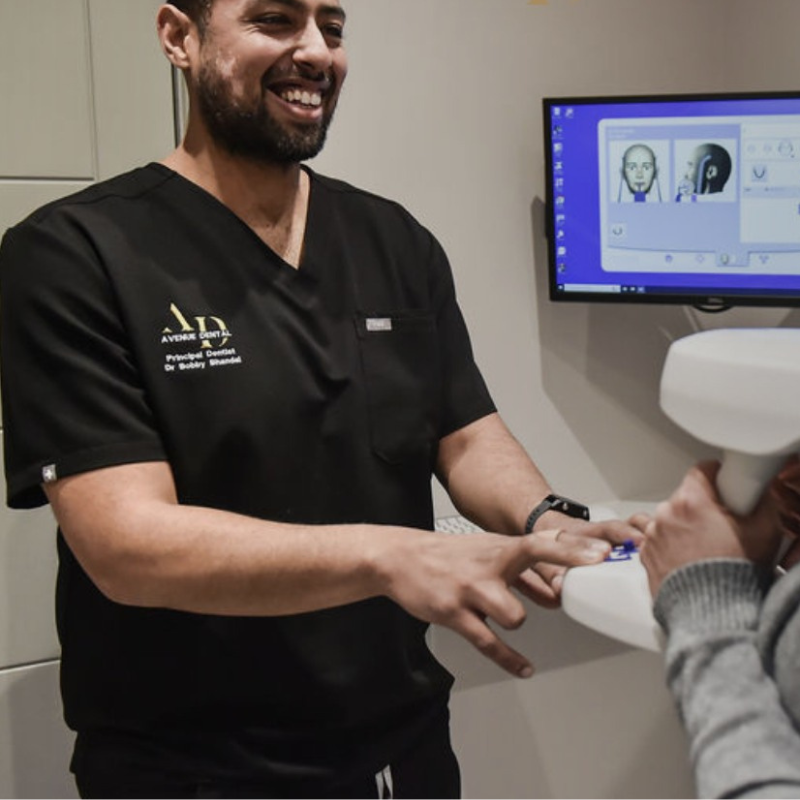Root Canal Leamington Spa
If you’re looking for root canal treatment in Leamington Spa, Avenue Dental Practice offers safe, comfortable endodontic care to relieve tooth pain and restore your smile. A root canal (also known as endodontic therapy) removes infection from deep inside a tooth, preserves the natural tooth structure and prevents the need for extraction.
Treat tooth infections for good with root canal treatment in Leamington Spa
What is a root canal?
Inside each tooth lies a soft centre called the pulp, containing nerves and blood vessels. Deep decay, cracked fillings, trauma or advanced gum disease allow bacteria to invade this space, causing inflammation and often severe pain. During a root‑canal procedure we remove the infected pulp, disinfect and shape the tiny canals, then seal them to protect the tooth for the long term.
Why you might need a root canal
- Persistent toothache when biting or chewing
- Sensitivity to hot or cold that lingers after the stimulus is removed
- Darkening of a tooth compared to its neighbours
- Swollen or tender gums around a specific tooth
- Abscess or “gum boil” that may release pus or cause a foul taste
- Looseness or facial swelling in more severe cases
These symptoms can result from decay, leaking fillings, cracks or trauma. If left untreated, the infection may spread to other teeth or even affect your overall health. Early intervention in root canal Leamington Spa cases gives the best chance of saving your tooth.

How we diagnose and treat root‑canal problems

When you come in for a consultation, we will:
- Listen to your concerns and take a thorough history.
- Examine your teeth and gums and perform diagnostic tests.
- Take digital X‑rays or scans to see the extent of the infection and the shape of the canals.
- Discuss the findings and explain your options so you can make an informed decision.
If you need root‑canal therapy, here’s what happens:
- Anaesthetic – We numb the area completely so you remain comfortable throughout.
- Isolation – A rubber dam covers the tooth and keeps it dry.
- Access – We make a small opening in the crown to reach the pulp chamber.
- Cleaning and shaping – Using fine instruments and antimicrobial solutions, we remove the infected tissue and shape the canals.
- Sealing – The canals are filled with gutta‑percha (a natural rubber compound) and a sealer to prevent re‑infection.
- Restoration – A temporary filling protects the tooth until a permanent filling or crown is placed at a follow‑up visit.
Treatment typically takes one appointment for front teeth and two or more visits for molars, which have multiple roots. We use modern instruments and magnification to make the procedure efficient and precise.
Things to consider before booking an appointment
After treatment, you might experience mild tenderness for a few days, which is easily managed with over‑the‑counter pain relief. Most patients return to normal activities the same day.
Good oral hygiene and regular exams help prevent future infections and keep your treated tooth healthy.
FREE Consultation

Meet your endodontist in Leamington Spa
Dr Bobby Bhandal, our principal dentist, has extensive training in endodontics and is skilled at performing root‑canal procedures. His calm, gentle approach and commitment to continuous professional development ensure you receive the highest standard of care. Our dental nurses and sedation team are equally dedicated to your comfort and well‑being.
Enquire today
For more information on root canal treatments, contact our private dental practice in Leamington Spa now.
Common questions we get asked by our patients about root canal procedure
No, the procedure itself is not painful because local anaesthesia is used to numb the area. You may feel slight pressure during the treatment, but most patients report minimal discomfort. After the procedure, some mild sensitivity or discomfort is common, but it can easily be managed with over-the-counter painkillers.
The time required for a root canal depends on the complexity of the infection. Typically, it will take two to three appointments to complete the treatment, as the dentist needs to thoroughly clean and seal the root canal over time.
Yes, in most cases, a root canal is preferred over extraction because it allows you to preserve your natural tooth. Retaining the natural tooth helps maintain your normal bite and prevents the need for more complex procedures like implants or bridges, which are often required after extractions.
Yes, some sensitivity is normal following a root canal treatment. This usually subsides after a few days, and any discomfort can be managed with pain relievers. If the sensitivity lasts longer or becomes severe, it’s important to contact your dentist.
After a root canal, the dentist will place a temporary filling in the tooth. During a follow-up visit, the temporary filling is replaced with a permanent filling or a crown to restore the tooth’s full functionality and protect it from further damage.
Patients say


Get in Touch
Other services
Book A Consultation
Avenue
Opening Hours
Tue: 8:30am - 5:30pm
Wed: 8:30am - 5:30pm
Thu: : 8:30am - 5:30pm
Fri: 8:30am - 4:30pm
Sat: Appointment Only
Sun: Closed
Avenue
Opening Hours
Tue: 8:30am - 5:30pm
Wed: 8:30am - 8pm
Thu: : 8:30am - 5:30pm
Fri: 8:30am - 4:30pm
Sat: Appointment Only
Sun: Closed
Follow Us
Copyright All Rights Reserved © 2022 – Avenue Dental Practice
Copyright All Rights Reserved © 2022 – Avenue Dental Practice























































































































































